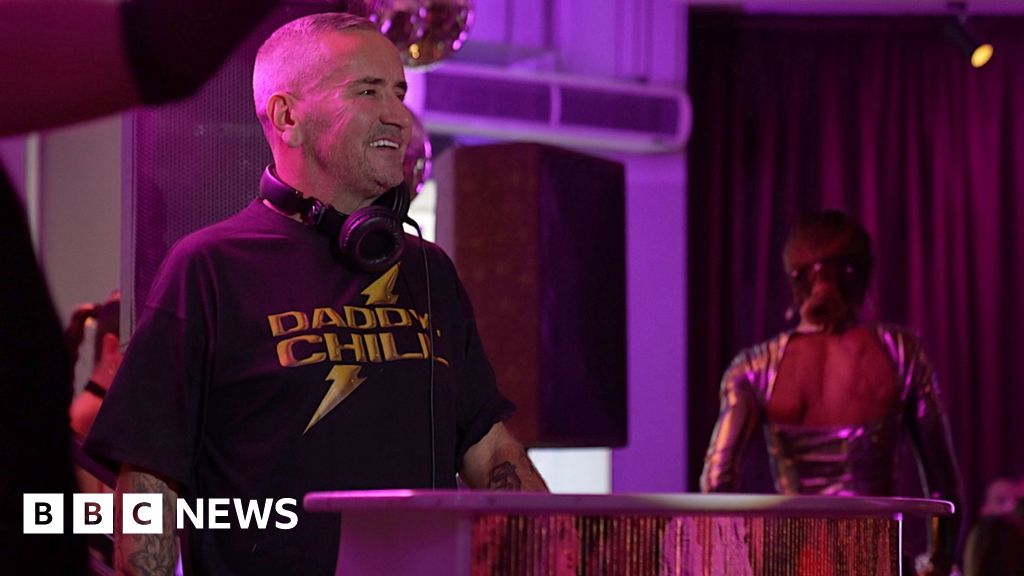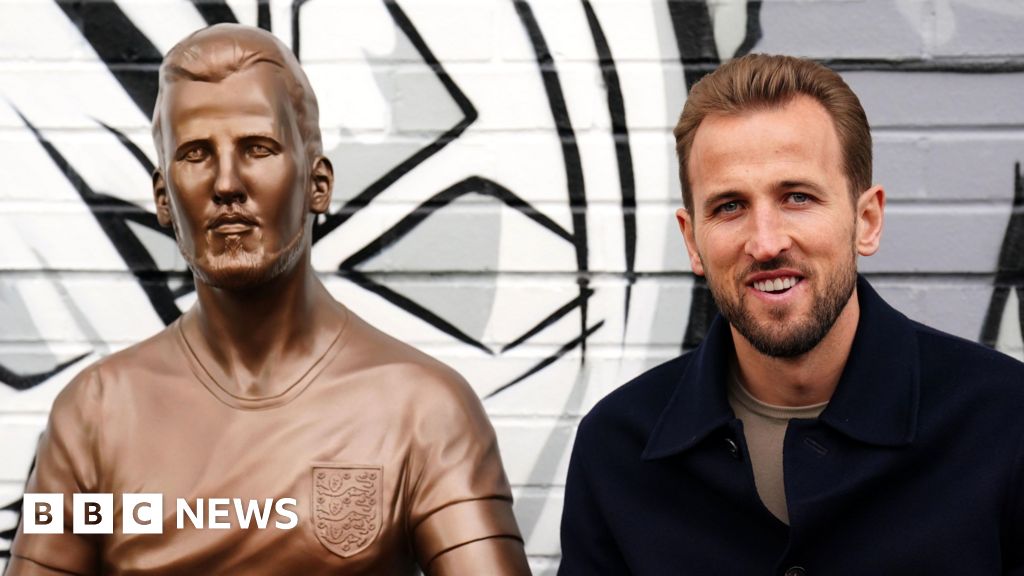Football
Black Arsenal: how the London club earned its place in Black British culture

Eddie Otchere on jungle, fashion and Ian Wright
I was a modern fan, before the modern fan existed. I had no interest in the game of football, apart from youthful exuberance and the chance to kick something hard and far.
I was not spending long summer evenings playing rush goalie or headers and volleys. Football was something that happened over there, to other people. But Ian Wright changed that. I learnt about football and the Arsenal, because Ian Wright, with his explosions of joy every time he scored, made me. I supported him, and through him learnt the ways of football.The data that governs modern football can’t tell you about the times that matter. These are moments where the stats make no sense – there is a sense of magic about them – and riding aloft that mystical wave is a black horse ridden by Ian Wright charging out of Brockley into the sunset, down Woolwich High Street.
The Arsenal is itself a simulacrum. Hailing from the south, moving to north London and embodying the spirits of the two cities, north and south London. Its name does not preclude its village associations but, rather like some Chaucerian character, it is the Arsenal, last of the English clubs to hold the definite article in front of their name after incorporation. It is a stop on the underground and a well-marketed construct of the values of London and holds more than the villages of Chelsea, Brentford, West Ham, Tottenham, Millwall, Crystal Palace will ever hold.
That said… It’s 1994 and that year London had its own defining sound that resounded across the planet, we called it jungle and its basslines shook the very foundations of what London was capable of doing. That season Arsenal had finished 12th, Chelsea 11th… and I cared nothing for the margins. That carnival, you’d hear M-Beat and General Levy’s Incredible everywhere, and in their video you’ll see a yout’ schucking out in the 1993 Adidas Arsenal away kit. I remember myself there: the JVC logo adorning the shirt and a Sega Saturn game controller in my hand as I play J,League Super Soccer, the Japanese edition of Virtua Soccer. The future is being written around me as the sounds of the 21st century are being crafted by producers in London, north, south, east and west. I’m just about to leave the house: camera in my bag, red Ralph Lauren shirt, Moschino trousers, white Reebok workouts, green Stone Island jacket, Next pants and Arsenal socks.
Then there were the clubs: the Astoria on Sunday for Roast; the YMCA on Tottenham Court Road on Tuesday night with Thunder and Joy; Orange at The Rocket on Holloway Road and AWOL at the Paradise in Angel. Man-a-man is geared up: Versace, Moschino, Ralphie, Armani, Paul Smith, name brands, cause the yout’ works hard for the money so now comes time to show and prove.
When Arsenal made Wrighty one of theirs, the south came with him. We continued to see this rude bwoy go on to prove himself for London as the greatest of all time. Nike made an advert about him out on Hackney Marshes, the surprise of seeing that celebration as he scored against everymen, on those green fields, the cheeky chirpiness of Parklife encapsulating the mischief that whirled around him.
Never truly appreciated by the kingdom, Wrighty was always appreciated by the Arsenal, the rude bwoy hero front and centre. My love of the Arsenal is entwined with my love for Ian Wright, the flash of the gold tooth in his grin, as he curls over laughing at his own joke. The unconfined joy and pain as he kicks every ball and stretches every sinew in the analyst’s chair. He is south London’s glory, burnished by his time with the Arsenal.
Ian Wright on Arsenal’s new generation of Black players
When I joined Arsenal in the 90s, there was so much happening concerning racism in the UK. There was so much racial violence around us. Arsenal would play Millwall a lot in that period and there was an issue every single time. The Millwall fans would racially abuse me and throw coins at me…
But the moment when I jump into the crowd with the Arsenal fans at the end of the game is something that I always loved because I got booed at most of the grounds I played at. I would get booed with every touch and people wanting to have you booked and referees calling you over every minute. For certain referees, a Black man like me is kryptonite to them because they can’t deal with someone like me because I’m not afraid of them. There’s nothing they could do to me, beyond the authority they have over me on the pitch in that moment.
I understand what Black Arsenal means now. We have the players, the fanbase, we have the history of Black players from all over the world and we have a deep connection with London. And the next generation is led by Bukayo Saka. It’s not about passing the baton, but connecting two very, very distinct generations. There is my generation of Black Arsenal. And here is a new one. Saka, he’s now the star boy. I’m just pleased that when you go through our history, Brendon Batson, Paul Davis, Chris Whyte, Rocky [David Rocastle], Mickey [Michael Thomas], me, Patrick Vieira, Thierry Henry, there’s always somebody there who’s championing us.
We’re very fortunate to have Saka. He’s got something where people will follow him. There’s a realness to him and a pureness to him. He’s going to be an achiever. He’s going to inspire people. Just in the way he is, the way he plays, and what he brings. Arsenal again have got somebody in their ranks who can galvanise that kind of thought from Black people. Where young Black people can look at him and say, “Yes, that’s how I want to be. That’s the guy.” He didn’t just take the number 7 [David Rocastle’s] shirt – he knows everything about Rocky, he took the time to learn and ask about him.. That makes me emotional.
after newsletter promotion
Reiss Nelson, Eddie Nketiah. I have so much love and support for these young men.
Arsenal v Leeds, September 2002: Rodney Hinds, the Voice
When Arsenal became the first club to field nine Black players in a Premier League game against Leeds, I had a feeling something special was taking place. Sitting in the Elland Road stand, I did detect some sort of feeling towards the Arsenal team sheet that was being read out over the Tannoy: Seaman, Lauren, Campbell, Cygan, Cole, Touré, Vieira, Gilberto, Wiltord, Henry, Kanu. Whether that was nerves by the Leeds fans, whether that was respect, disrespect, or a combination of all three I couldn’t be quite sure. Put it this way, [there were] some vibes and mutterings from the home support, as if to say, “Something’s happening here today.”
Some 90 minutes later, the vibes were [proved] correct as the Gunners played some of the most sublime football the famous Yorkshire pitch has ever witnessed. They ran out 4–1 victors, [but they] should have doubled that score in truth, such was their dominance. We often talk about diversity now, but it wasn’t always the watchword back then. History was being made. It was a positive advert for diversity that had never been seen before. Visionary Arsenal manager Arsène Wenger had changed English football with his unique emphasis on diet and sleep, but this fixture and subsequent lineup took things to another level. He had assembled a squad that was predominantly Black.
If Wenger’s men had just been run of the mill, the powerful story would not be what it is. They were hugely successful as a collective and some of them would later be part of the legendary “Invincibles” team. They changed the narrative for Black players due to their class. In many ways, this Arsenal squad reminded me of the all-conquering West Indies cricket team that gave so much pride to the community. Like them, the Arsenal team at Elland Road in particular (and global football in general) gave a huge percentage of diverse football fans at home and abroad the opportunity to puff out their chests.
We talk today about generational managers such as Pep Guardiola and Sir Alex Ferguson, and they deserve their place in history. I just think that the real difference between that esteemed duo and Wenger was not so much about trophy hauls as that the Frenchman was responsible for making the talented Black footballer in vogue en masse.
Without Wenger and his diverse players, I don’t think the Premier League goes to where it does – the most competitive and watched league on the planet.
Wenger saw the future before anybody else.










